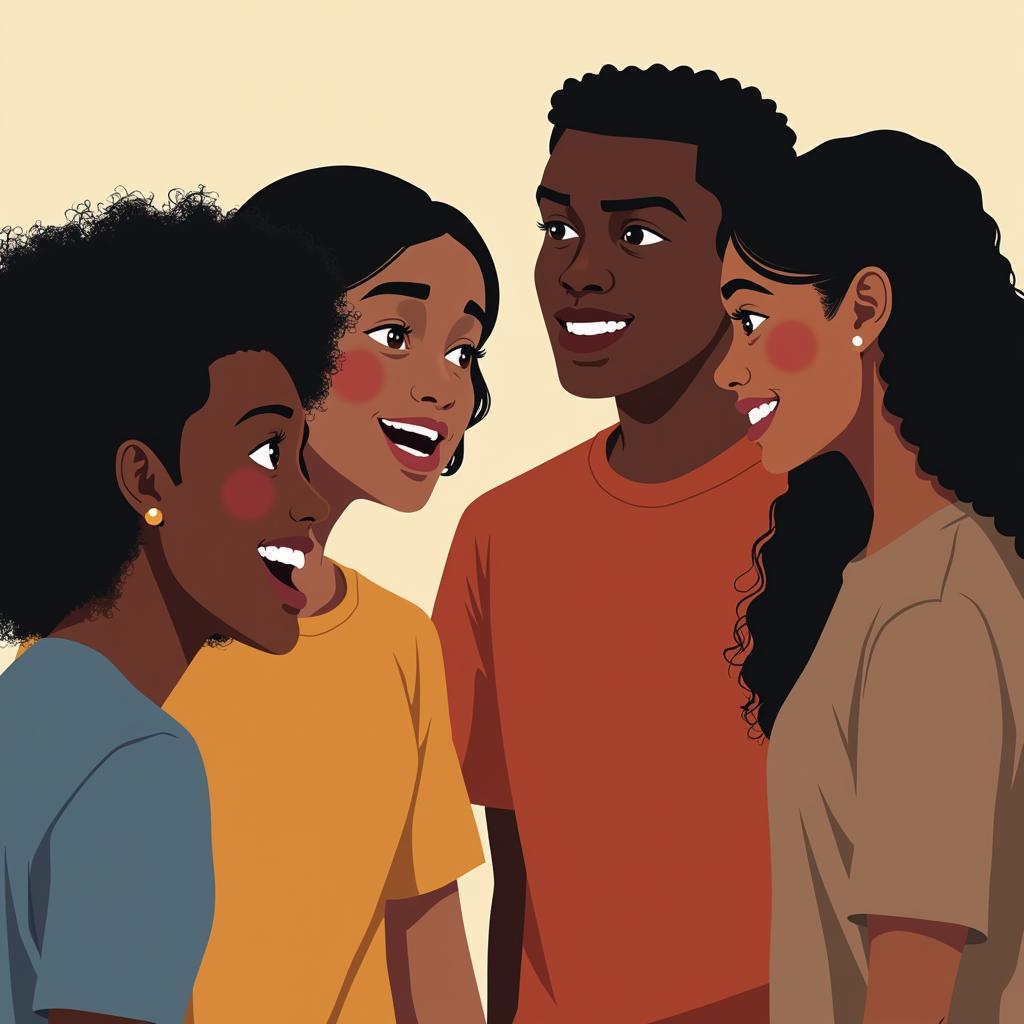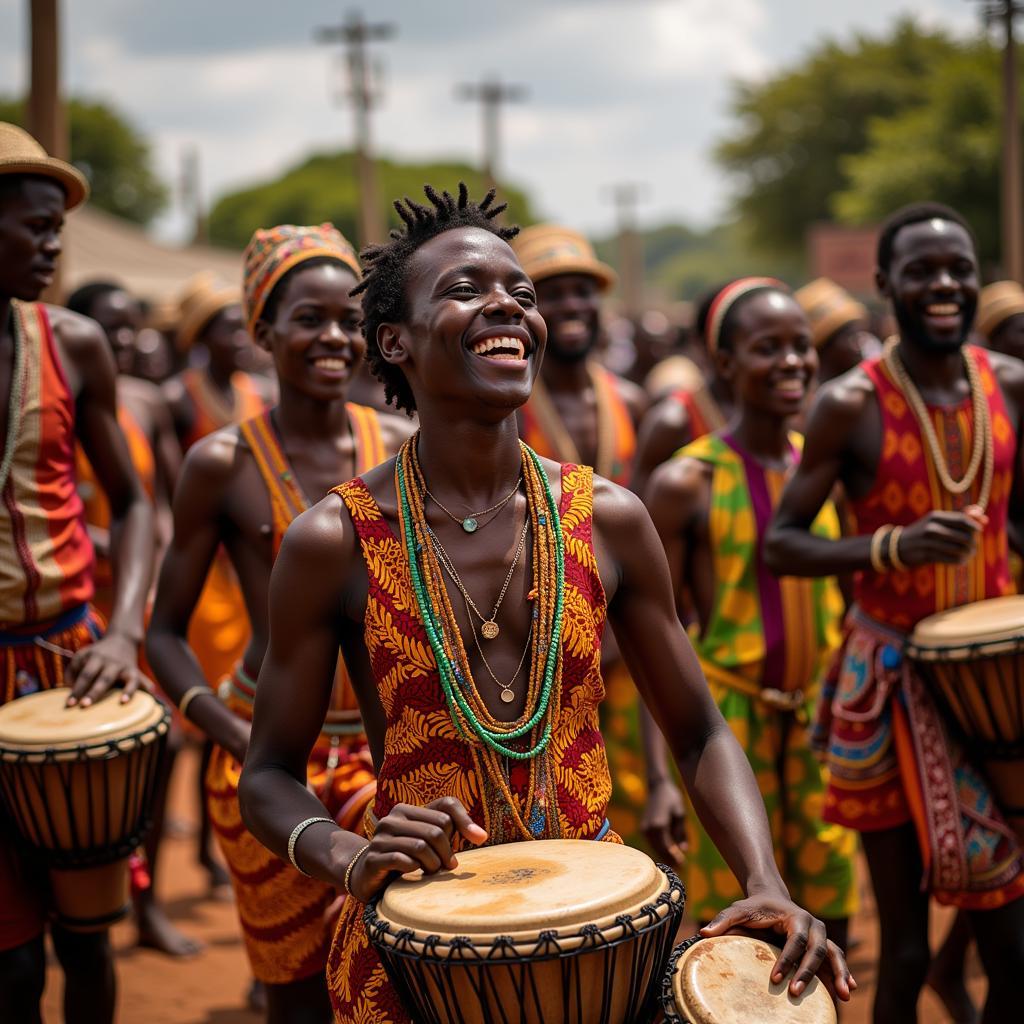African Commission on Human and Peoples’ Rights Case Law: A Comprehensive Guide
The African Commission on Human and Peoples’ Rights Case Law plays a crucial role in protecting human rights across the African continent. This guide will delve into the importance, function, and impact of the Commission’s jurisprudence, offering a thorough understanding of its contribution to human rights development in Africa. We’ll explore key cases, the Commission’s structure, and its relationship with other human rights bodies.
Understanding the African Commission’s Role
The African Commission, established under the African Charter, acts as a quasi-judicial body responsible for promoting and protecting human and peoples’ rights. Its case law, developed over decades, provides crucial precedents for interpreting the Charter and shaping human rights standards across Africa. This body of law addresses a wide range of issues, from civil and political rights to economic, social, and cultural rights. Understanding its workings is essential for anyone interested in African human rights law.
The Commission’s jurisdiction covers all states party to the African Charter. It receives complaints from individuals, NGOs, and other stakeholders, alleging violations of the Charter by state parties. Through its investigations and decisions, the Commission seeks to hold states accountable for human rights abuses and offer redress to victims.
Key Case Law of the African Commission
Several landmark cases have shaped the African Commission’s jurisprudence and significantly impacted human rights protection on the continent. These cases have established important principles and precedents in areas such as freedom of expression, the right to a fair trial, and protection against torture. Examining these cases provides valuable insight into the evolving landscape of human rights law in Africa.
One notable case is the Ogoni case against Nigeria, which addressed environmental degradation and its impact on the rights of indigenous communities. This case highlighted the importance of environmental rights and the responsibility of states to protect the environment. Another landmark case involves SERAC v. Nigeria, which dealt with the execution of Ken Saro-Wiwa, a prominent environmental activist. This case focused on the violation of the right to life and the importance of due process.
The Structure and Functioning of the African Commission
The African Commission comprises eleven independent experts, elected by the African Union Assembly, who serve in their personal capacities. The Commission operates through various mechanisms, including individual communications, state reporting, and special procedures.
The Commission’s decisions, although not legally binding, hold significant moral weight and contribute to the development of international human rights law. They often influence national legislation and policy, and they play a key role in raising awareness about human rights issues. The African Court on Human and Peoples’ Rights complements the work of the Commission.
The African Commission and International Human Rights Law
The African Commission interacts with other international human rights bodies, such as the UN Human Rights Committee and the Inter-American Commission on Human Rights, to promote consistency and coherence in international human rights standards. The Commission also collaborates with regional human rights mechanisms, including the African Committee on the Rights and Welfare of the Child. This cooperation strengthens the overall framework of human rights protection globally. Understanding the African Commission’s value in ICJ proceedings is also crucial.
“The African Commission’s role is crucial in upholding human rights principles on the continent,” says Dr. Abena Busia, a renowned expert in African human rights law. “Its jurisprudence offers a critical framework for addressing human rights challenges and ensuring accountability.”
Professor Kwame Nkrumah, a leading scholar in African legal studies, adds, “The Commission’s case law is a dynamic body of work that reflects the evolving understanding of human rights in the African context. It plays a vital role in shaping legal norms and promoting social justice.”
Conclusion
The African Commission on Human and Peoples’ Rights case law is a vital instrument for advancing human rights protection in Africa. By understanding its role, structure, key cases, and interaction with other human rights bodies, we can appreciate its significant contribution to the development of a robust human rights framework on the continent. This ongoing effort requires continuous vigilance and a commitment to upholding the principles enshrined in the African Charter.
FAQ
- What is the main function of the African Commission?
- How does the African Commission investigate human rights violations?
- What is the relationship between the African Commission and the African Court on Human and Peoples’ Rights?
- How can individuals file complaints with the African Commission?
- What are some landmark cases of the African Commission?
- How does the African Commission contribute to international human rights law?
- What is the role of the African Charter in the work of the African Commission?
When you need assistance, please contact us at Phone Number: +255768904061, Email: kaka.mag@gmail.com or visit us at Mbarali DC Mawindi, Kangaga, Tanzania. We have a 24/7 customer service team.

